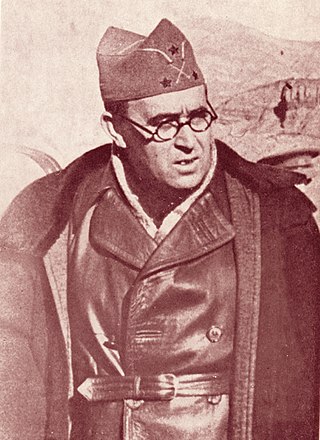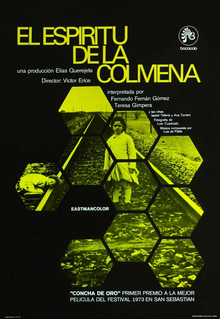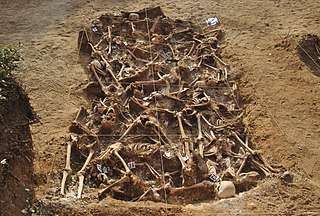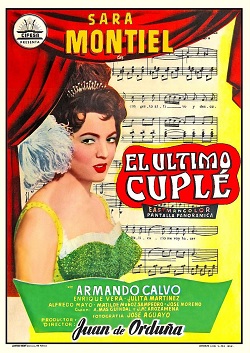
The Valley of Cuelgamuros, formerly known as Valley of the Fallen , is a monument in the Sierra de Guadarrama, near Madrid. The valley contains a Catholic basilica and a monumental memorial in the municipality of San Lorenzo de El Escorial. Dictator Francisco Franco ordered the construction of the monumental site in 1940; it was built from 1940 to 1958, and opened in 1959. Franco said that the monument was intended as a "national act of atonement" and reconciliation.

Camilo José Cela y Trulock, 1st Marquess of Iria Flavia was a Spanish novelist, poet, story writer and essayist associated with the Generation of '36 movement.

Euzko Gudarostea was the name of the army commanded by the Basque Government during the Spanish Civil War. It was formed by Basque nationalists, socialists, communists, anarchists and republicans under the direction of lehendakari José Antonio Aguirre and coordinating with the army of the Second Spanish Republic. It fought the troops of Francisco Franco during 1936 and 1937. It surrendered to the Italian Corpo Truppe Volontarie at Santoña, while the rest of the Republican army kept fighting until 1939. This event is called the Santoña Agreement, Pact of Santoña, or Treason of Santoña by some Spanish leftists.

Santiago José Carrillo Solares was a Spanish politician who served as General Secretary of the Communist Party of Spain (PCE) from 1960 to 1982.

Vicente Rojo Lluch was Chief of the General Staff of the Spanish Armed Forces during the Spanish Civil War.

The Spirit of the Beehive is a 1973 Spanish drama film directed by Víctor Erice. The film was Erice's feature directorial debut and is considered a masterpiece of Spanish cinema. The film focuses on a young girl named Ana and her fascination with the 1931 American horror film Frankenstein and also explores her family life and schooling.
The Battle of Badajoz was one of the first major engagements of the Spanish Civil War, resulting in a tactical and strategic Nationalist victory, however at a significant cost in time and troops. After several days of shelling and bombardment, Nationalists stormed the fortified border city of Badajoz on August 14, 1936, cutting off the Spanish Republic from neighbouring Portugal and linking the northern and southern zones of Nationalist control.

The Maquis were Spanish guerrillas who waged an irregular warfare against the Francoist dictatorship within Spain following the Republican defeat in the Spanish Civil War until the early 1960s, carrying out sabotage, robberies and assassinations of alleged Francoists as well as contributing to the fight against Nazi Germany and the Vichy regime in France during World War II. They also took part in occupations of the Spanish embassy in France.
The Beehive is a 1982 Spanish film directed by Mario Camus based on the novel The Hive by Camilo José Cela, it depicts the aftermath of the Spanish Civil War and its impact on several characters. Cela has a small role as Matías Martí.

Raza is a 1942 Spanish war film directed by José Luis Sáenz de Heredia, and used as propaganda by the dictatorship of Francisco Franco in favour of the regime and against the supporters of the deposed Second Spanish Republic. It is based on a semi-autobiographical novel by Spanish caudillo Francisco Franco under the pseudonym of "Jaime de Andrade."

El jardín de las delicias, also known as The Garden of Delights in English language cinema, is a 1970 Spanish drama film co-written and directed by Carlos Saura.

In the history of Spain, the White Terror describes the political repression, including executions and rapes, which were carried out by the Nationalist faction during the Spanish Civil War (1936–1939), as well as during the first nine years of the regime of General Francisco Franco. In the 1936–1975 period, Francoist Spain had many officially designated enemies: Loyalists to the Second Spanish Republic (1931–1939), Liberals, socialists of different stripes, Protestants, intellectuals, homosexuals, Freemasons, Romanis, Jews, Basque, Catalan, Andalusian and Galician nationalists.

El Sur is a 1983 drama film directed by Spanish filmmaker Victor Erice, produced by Elias Querejeta, and starring Icíar Bollaín as the adult main character. It is based on Adelaida García Morales' short novel of the same name.
The Siege of the Alcazar or L'Assedio dell'Alcazar is a 1940 Italian war film directed by Augusto Genina about the famous siege of the Alcázar during the Spanish Civil War, set in Toledo, Spain. The film won the Mussolini Cup in Venice Film Festival for being the Best Italian Film. The film runs more in the Spanish dubbed version, it was restored by Filmoteca Española and released in DVD in Spain by Divisa Home Video. The film was shot in Cinecittà with Italian, French and Spanish actors. In the Italian version all three non-Italian actors spoke their lines in Italian. They were dubbed by Italian actors afterwards.

The Spanish Civil War was fought from 1936 to 1939 between the Republicans and the Nationalists. Republicans were loyal to the left-leaning Popular Front government of the Second Spanish Republic, and consisted of various socialist, communist, separatist, anarchist, and republican parties, some of which had opposed the government in the pre-war period. The opposing Nationalists were an alliance of Falangists, monarchists, conservatives, and traditionalists led by a military junta among whom General Francisco Franco quickly achieved a preponderant role. Due to the international political climate at the time, the war had many facets and was variously viewed as class struggle, a religious struggle, a struggle between dictatorship and republican democracy, between revolution and counterrevolution, and between fascism and communism. According to Claude Bowers, U.S. ambassador to Spain during the war, it was the "dress rehearsal" for World War II. The Nationalists won the war, which ended in early 1939, and ruled Spain until Franco's death in November 1975.

The Nationalist faction or Rebel faction was a major faction in the Spanish Civil War of 1936 to 1939. It was composed of a variety of right-leaning political groups that supported the Spanish Coup of July 1936 against the Second Spanish Republic and Republican faction and sought to depose Manuel Azaña, including the Falange, the CEDA, and two rival monarchist claimants: the Alfonsist Renovación Española and the Carlist Traditionalist Communion. In 1937, all the groups were merged into the FET y de las JONS. After the death of the faction's early leaders, General Francisco Franco, one of the members of the 1936 coup, headed the Nationalists throughout most of the war, and emerged as the dictator of Spain until his death in 1975.
Espoir: Sierra de Teruel is a 1938–39 Spanish-French black and white war film, directed by Boris Peskine and André Malraux. It was not commercially released until 1945. Malraux wrote the novel L'Espoir, or Man's Hope, published in 1937, which was basis for the film. The director won the 1945 Prix Louis Delluc award.

The last use of capital punishment in Spain took place on 27 September 1975 when two members of the armed Basque nationalist and separatist group ETA political-military and three members of the Revolutionary Antifascist Patriotic Front (FRAP) were executed by firing squads after having been convicted and sentenced to death by military tribunals for the murder of policemen and civil guards. Spain was Western Europe's only dictatorship at the time and had been unpopular and internationally isolated in the post-war period due to its relations with Nazi Germany in the 1930s and 1940s and the fact that its autocratic leader, Francisco Franco, had come to power by overthrowing a democratically elected government. As a result, the executions resulted in substantial criticism of the Spanish government, both domestically and abroad. Reactions included street protests, attacks on Spanish embassies, international criticism of the Spanish government and diplomatic measures, such as the withdrawal of the ambassadors of fifteen European countries.

The Last Torch Song, better known under its Spanish title El último cuplé, is a 1957 Spanish jukebox musical film directed by Juan de Orduña and starring Sara Montiel, Armando Calvo and Enrique Vera.

Lisardo Doval Bravo was a Spanish soldier and officer of the Spanish Civil Guard, where he became a general.
















